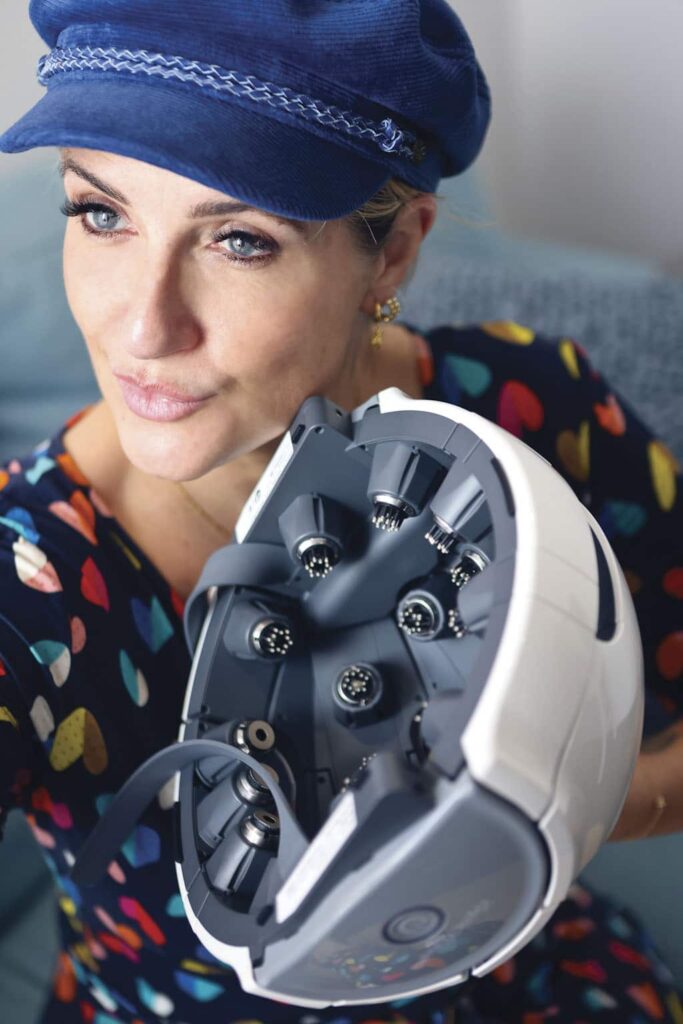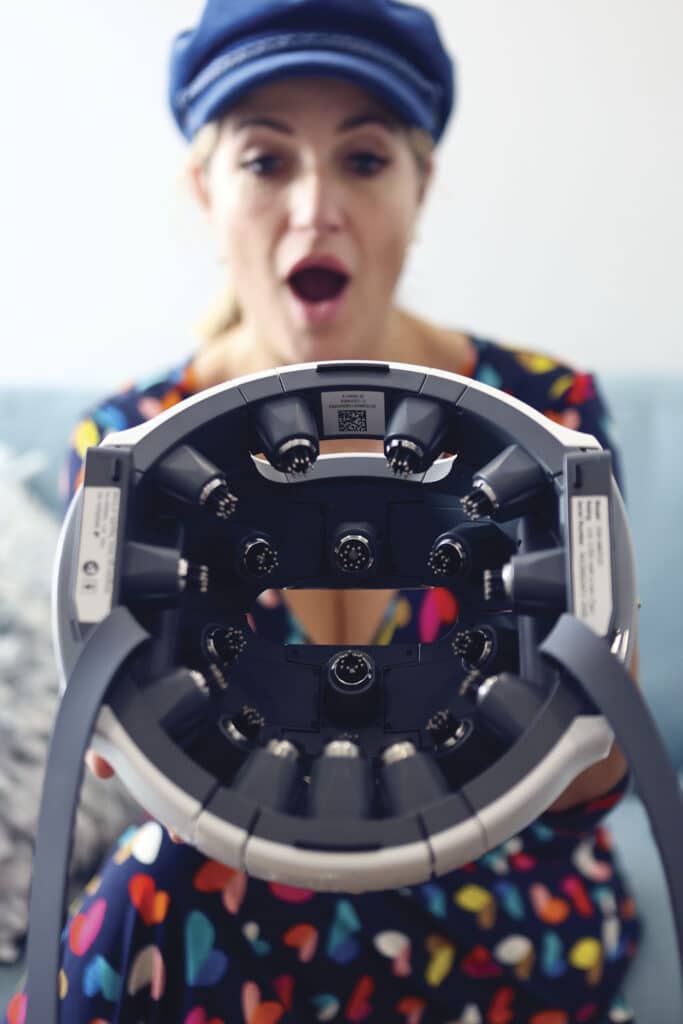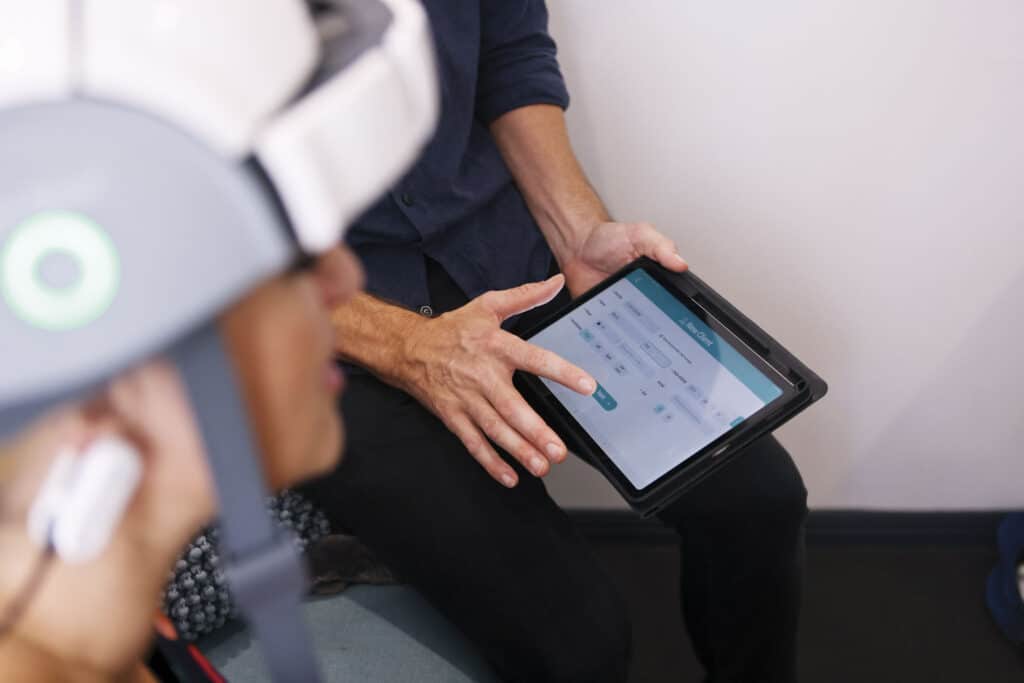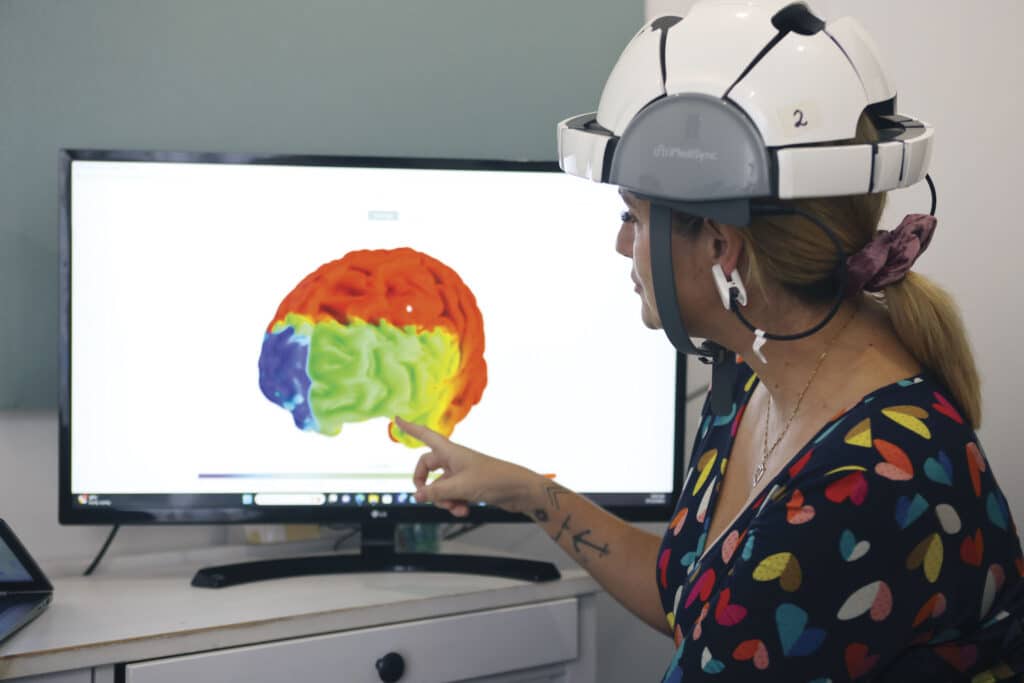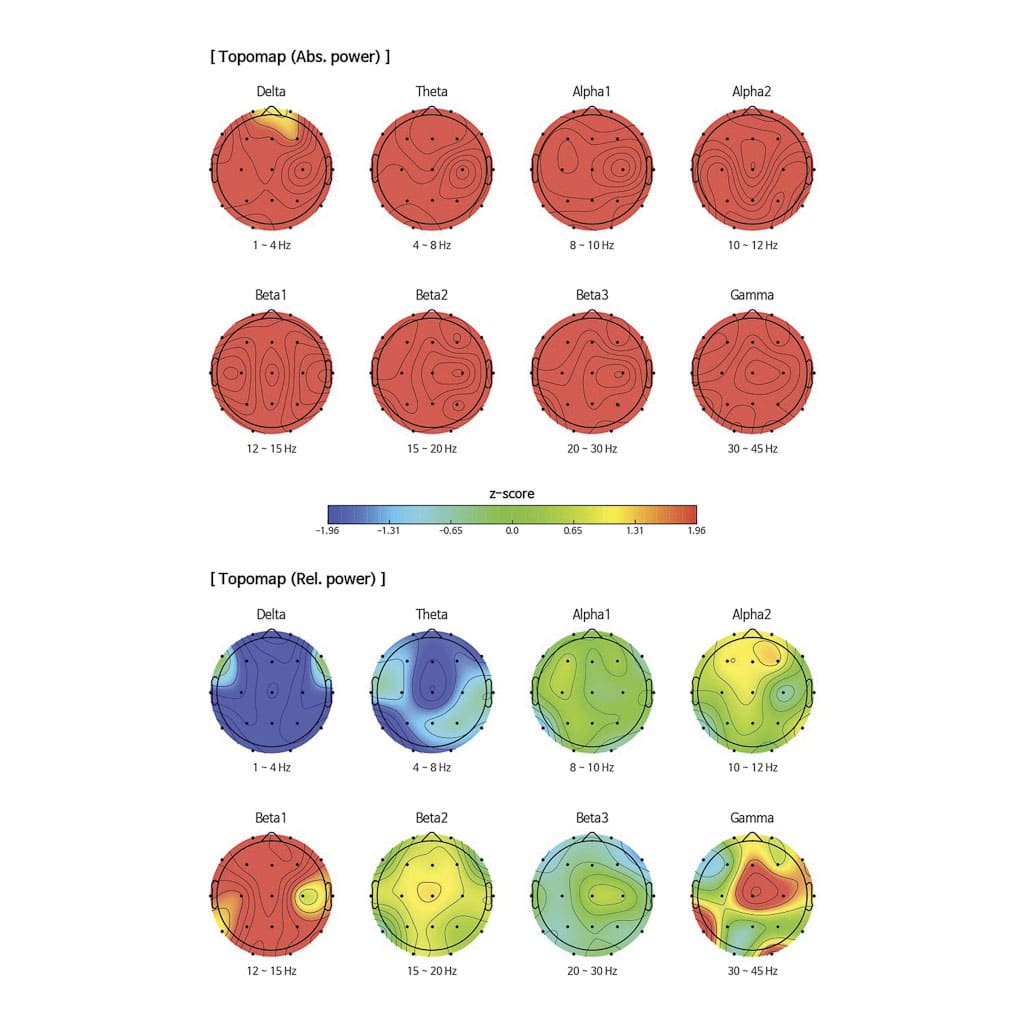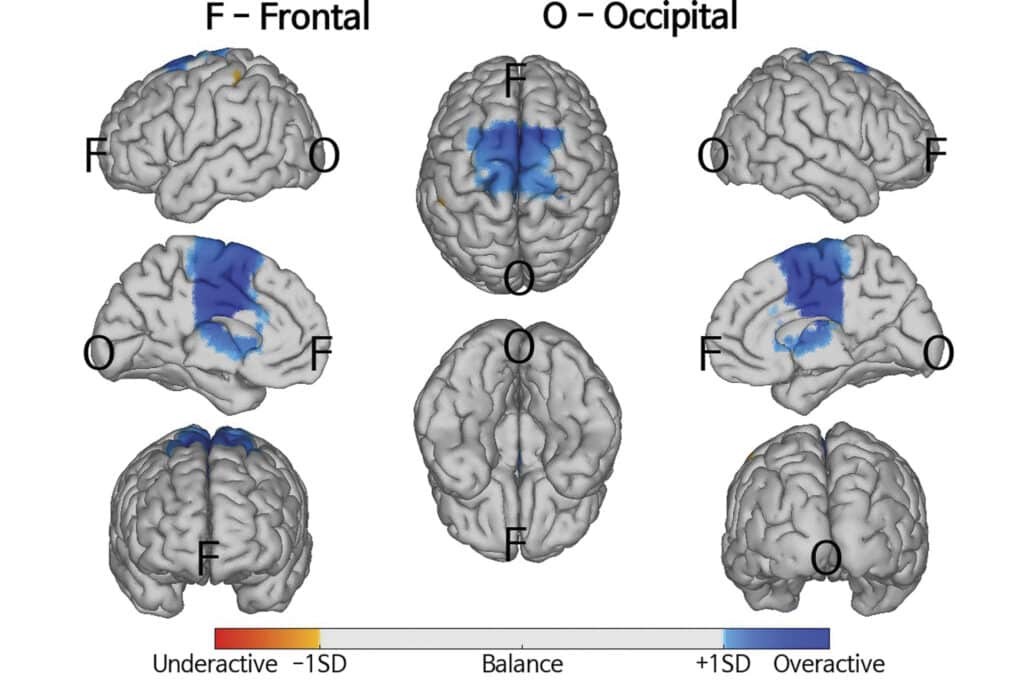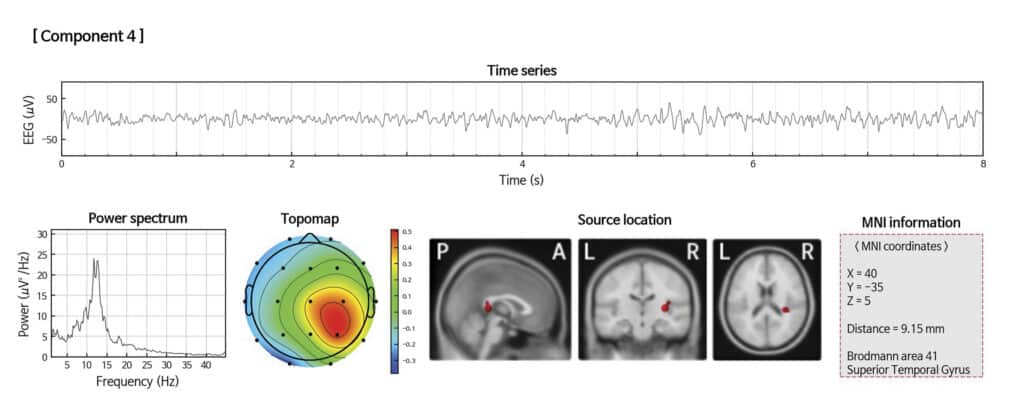MENTAL HEALTH
Tackling Mental Health HEAD-ON
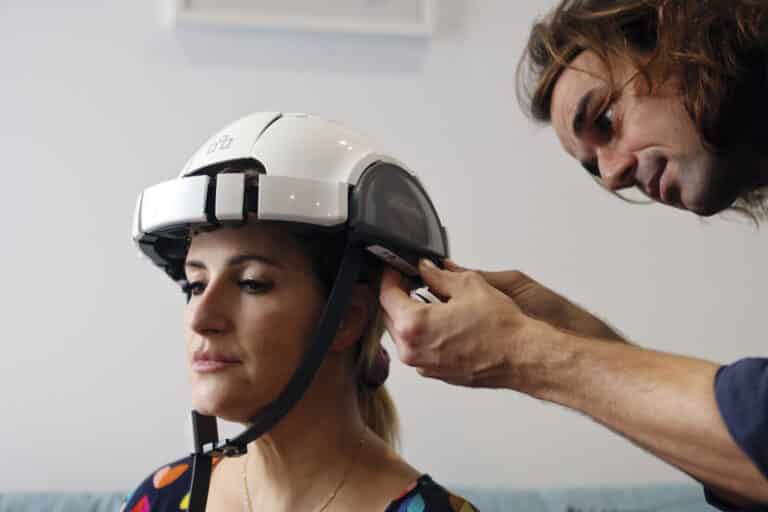
WORDS: Bianca Dye PHOTOGRAPHY Brian Usher - [email protected]
How Brain Care can change your life with proper diagnosis and treatment
Ever since I can remember, I have suffered from anxiety. I had no idea what it was when I was younger. We didn’t have TikTok to diagnose us then; I just knew I had knots in my tummy and would feel overwhelmed and have no idea what to do about it.
Like so many, I “numbed it away” with alcohol, drugs, toxic relationships, being “busy” and just generally pretending it wasn’t there until one day when I was 30, I had such a bad panic attack I couldn’t even go on the radio.
I was hiding in my bathroom, not knowing why I felt the world spinning, and realised I couldn’t ignore it anymore. I went and saw a psychiatrist and was diagnosed with generalised anxiety disorder (GAD).
Over the years, I have been on and off different medications, studying the mind through reading books on how anxiety is caused, trying to work out how to self-soothe. I stopped most medications about 15 years ago and only recently went back on some to help me get through a really shitty time in my life.
I’ve done every type of therapy you can imagine from NLP to tapping to EMDR. Yoga health retreats in Bali and most recently in the last 10 years, meditation every day which I definitely think helps…I know it does.
Last year was a big year for me. I turned 50, lost my gig on the radio and was formally diagnosed with ADHD… something I’d suspected for a long time.
My psychiatrist decided to put me on specific ADHD medication, and I definitely think it has been helping me focus and quieten my monkey brain, but didn’t want to stop there and didn’t want to think that I had to be on medication for the rest of my life (not that there is anything wrong with that! I have friends who owe their life to medication and modern medicine is incredible!) but decided I wanted to look further, know more.
Someone told me about the amazing things they were doing at Brain Care…there is an office in Robina and one in the Tweed.
I decided to find out more. Why not…life is too precious to just wonder if you could have done more for your mental health, right?
I’d heard things on podcasts that anxiety can be caused by many other things like menopause, brain injury & inflammation etc. and was curious to find out more.
During my first visit to the Brain Care Centre, I had the most fascinating conversation with one of their therapists. One of the first questions they asked me was had I ever had a fall?
I had no idea what that would have to do with anxiety, but I explained that I had had a pretty bad horse-riding accident when I was around nine and had hit the back of my head.
My therapist explained that this could be the cause of a lot of my anxiety.
Huh?
I was gobsmacked.
When you hit the back of your head hard, the brain bangs against the outside of your skull & can cause lesions. These lesions over the years can interrupt the flow of blood to certain areas of the brain and the brain can swell. The swelling can cause inflammation, which in turn can cause anxiety later in life because the brain is not functioning the way it should. I had no idea that this was even possible but apparently, it’s very common in sports people who hit their heads many times and have concussion… obviously I’m explaining it in layman’s terms here. The deeper meaning behind it is a lot more complicated to explain, but actually made so much sense to me.
I didn’t necessarily want to rely on meds for the rest of my life; I wanted to try and find out what was going on inside my brain and see if there was a way to help myself without meds. The guys at Brain Care are revolutionary with this… they are taking neuroscience to a new level.
At my second appointment, I met with the lovely Paul Moorhead-Read who explained that I would be completing a full brain assessment called a QEEG via the amazing iSync Wave Helmet (see pics).
This helmet measures electrical activity in the brain and can Decipher whether the brain is functioning healthily or not and whether you are processing information properly. Of course, if you’re not, it can lead to depression, anxiety, slower learning and all sorts of mental health issues.
All of this was absolutly blowing my mind as I had no idea that this service even existed and that we could measure our brains to see why we were struggling with our mental health!
I also had an assessment to investigate my cognitive profile – it tests your short and long-term memory, working memory, processing speed, executive function and how well you can sustain and switch your attention from one idea to another, and how quickly you can do this. Again, everything is compared to others in your age group. It also tests emotional responses to certain questions and pictures, measuring the brainwave activity while you are completing these tasks. (This is not measured while recording the brain waves – it is completed separately to explore these functions. It also tests your ability to recognise emotional expressions on faces and uses questionnaires for further information about your emotional and psychological profile).
Was it actually really fun to do? I loved it. I learned that I’m very fast in some areas – super quick – which makes being the silly quick-witted gal on the radio easy for me… but other tasks like remembering certain shapes and numbers made me anxious. They were a real struggle and I had no idea why… it was a nice feeling to think I was finally going to get some answers why I didn’t think my brain worked the way it should.
All of these results add up to give you a beautiful picture of who you are and how your brain works… simply amazing.
The idea is once they have all this information the therapists at Brain Care can then set out a programme specialised to train your brain to improve. They discovered, of course, that no one has a “perfect” brain; even geniuses can struggle with many areas!
The information is uploaded to the cloud and compared with other brains.
It’s the only gender and age-specific normative database in the world, and you get the results within 10 minutes of your first consultation. It takes 3-D images of the brain activity showing its strengths and weaknesses, and then the team will provide protocols to train your brain… this would be my next step in the programme.
Whether you are in year 12 (extra info – brain waves can be compared to as young as 4-year-olds, cognitive assessment as young as 8) or if you’re an adult and you can’t focus, this science is ground-breaking and life-changing.
When my first results came back, we found that I was getting slower waves in the back of my brain, which can be attributed to a fall, and a high volume of Alpha waves. This means that, although I’m in neutral, my brain is still revving the engine, making me agitated and anxious… and this hit home because that’s how I feel. Like I’m standing still, but my body just wants to go go go constantly. It’s exhausting… and to find out that this perhaps has been caused by a fall and that I’m not going crazy was the most incredibly relieving thing I could’ve heard. Wow! A horse-riding accident when I was nine years old could be the reason for my anxiety…who would have thought?
What is incredible is the feedback that this team is getting when people feel so relieved to find out that their depression, anxiety or ADHD could be caused by head trauma because they can see it. They can SEE the brainwaves and what’s going on, rather than just assuming and basing their mental health diagnoses on emotional reactions.
I was so intrigued and so excited to hear all of this that I’ve decided to keep going there.
I want to find out more about my brain. I want to learn if it truly does have inflammation and if that is causing a lot of mental health issues for me, so I’ve decided I’m going to continue with the programme. I’ll update you soon… watch this space!
P.S. Some useful information that might interest you is that these guys are NDIS-registered providers. Also, you can claim this treatment in your yearly tax as long as you have an ABN – it is classed as “personal development”. Of course, all situations are different but that made a difference for me with fees.
——————————
Let’s get a little technical for a second
Quantitative Electroencephalograph (QEEG) can determine brain function by measuring the speed (waves per second) and power (voltage) of electrical impulses in thousands of a second. In doing so, the function of different brain regions can be identified.
This then determines each person’s brain wave pattern and functioning and provides information on how they influence your emotions, senses, thoughts and behaviour. Along with considering the person’s goals and other assessments, this informs completely personalised protocols for transcranial photobiomodulation (tPBM), neurofeedback and other neuromodulatory protocols.
The end result, a completely personalised therapy programme based on careful examination of the brain with consideration of a person’s unique psychological profile to maximise brain function.
Visit: www.braincare.com.au for more information.


